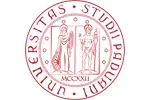We're moving! This site will be relocating to goingto.university in 2026. Please update your bookmarks to the new address.


| The award | How you will study | Study duration | Course start | Domestic course fees | International course fees |
|---|---|---|---|---|---|
| MSc | Full-time | 2 - 3 years | - | - | - |
Global Forestry (GLOFOR) is a two-year English language world-class Erasmus Mundus MSc programme that prepares graduates to deal with forestry’s tremendous contemporary challenges and potentials in dealing with the problems of biodiversity protection, climate change mitigation and adaptation, and the development of a circular bio-economy.
Deforestation and forest degradation account for 10-15% of the world’s greenhouse gas emission, thus contributing to the global loss of biodiversity and undermining the live-hoods of millions of people who depend on forests.
These processes predominantly take place in low-income areas, especially in the Global South; for this reason, a global transformation towards an equitable and green economy will not be possible unless forests in medium and low-income areas come under sustainable forms of utilization and protection. In the meanwhile, forest cover is growing in most of the advanced economies representing an opportunity for the development of a bio-economy based on closer to nature forest management criteria.
Watch the GloFor video presentation.
The Erasmus Mundus programme offers a number of scholarships.
Alternative sources of founding and living costs exist and are findable at the link: https://globalforestry.eu/applications/scholarships/
- A student’s Erasmus Mundus scholarship amount to a maximum of 33.600 € (1.400 € per month for up to 24 months);
- Students not covered by an Erasmus Mundus scholarship may apply for Erasmus+ Mobility Grants, in that case students can apply for 10 to 12 monthly Erasmus+ Mobility Grant contributions with a monthly amount of 450-500 € depending on the chosen mobility track and on the total amount of Erasmus+ funding allocated to the University of Copenhagen by the EU Commission.
Other opportunities to receive financial support are the “ITTO Fellowship Programme” and the “World Bank Scholarships Program”.
Application procedure:
Prerequisite for admission is to hold a relevant bachelor’s degree or another relevant degree at the same educational level.
- Non-EU, Non-EEA and Non-Swiss citizens can apply yearly approximately from 15 November to 15 January.
More details at the link: https://globalforestry.eu/applications/application-procedure-2/non-eu-eea-and-swiss-citizens/
- EU, EEA and Swiss citizens can apply yearly approximately from 16 January to 1 March.
More details at the link: https://globalforestry.eu/applications/application-procedure-2/eu-eea-and-swiss-citizens/
Below are some suggested courses at other providers that you may also be interested in:
Data Science Bachelor of International Liberal Arts
International College of Liberal Arts (iCLA) at Yamanashi Gakuin University
Find out moreIf you do not meet the entry requirements for this course then consider one of these postgraduate preparation courses from another institution:
Graduate Diploma in Strategic Management Level 7
New Zealand Management Academies (NZMA)
Find out moreThere are 59 other courses listed from University of Padua. A selection of these are displayed below:
Join the StudyLink email list and never miss a chance to turn your study abroad dreams into reality!

Find out more about studying in Italy